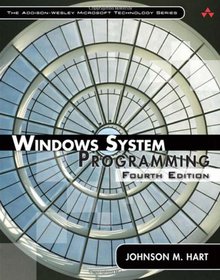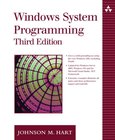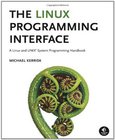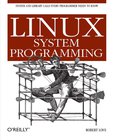Windows System Programming
4th Edition

Book Details:
| Publisher: | Addison-Wesley Professional |
| Series: | Addison Wesley |
| Author: | Johnson M. Hart |
| Edition: | 4 |
| ISBN-10: | 0321657748 |
| ISBN-13: | 9780321657749 |
| Pages: | 656 |
| Published: | Feb 26 2010 |
| Posted: | Nov 19 2014 |
| Language: | English |
| Book format: | |
| Book size: | 10.67 MB |
Book Description:
'If you're writing a native Win32 program or just want to know what the OS is really doing underneath, you need John's book. He covers the stuff that real systems programmers absolutely must know. Recommended.' Chris Sells, Microsoft Corporation 'This fourth edition does a great job of incorporating new features in the Vista, Windows 2008, and Windows 7 API, but also stays true to teaching the foundational elements of building applications that target the Windows OS.' Jason Beres, Product Management, Infragistics The Definitive Guide to Windows API Programming, Fully Updated for Windows 7, Windows Server 2008, and Windows Vista Windows System Programming, Fourth Edition, now contains extensive new coverage of 64-bit programming, parallelism, multicore systems, and many other crucial topics. Johnson Hart's robust code examples have been updated and streamlined throughout. They have been debugged and tested in both 32-bit and 64-bit versions, on single and multiprocessor systems, and under Windows 7, Vista, Server 2008, and Windows XP. To clarify program operation, sample programs are now illustrated with dozens of screenshots. Hart systematically covers Windows externals at the API level, presenting practical coverage of all the services Windows programmers need, and emphasizing how Windows functions actually behave and interact in real-world applications. Hart begins with features used in single-process applications and gradually progresses to more sophisticated functions and multithreaded environments. Topics covered include file systems, memory management, exceptions, processes, threads, synchronization, interprocess communication, Windows services, and security. New coverage in this edition includes Leveraging parallelism and maximizing performance in multicore systems Promoting source code portability and application interoperability across Windows, Linux, and UNIX Using 64-bit address spaces and ensuring 64-bit/32-bit portability Improving performance and scalability using threads, thread pools, and completion ports Techniques to improve program reliability and performance in all systems Windows performance-enhancing API features available starting with Windows Vista, such as slim reader/writer locks and condition variables A companion Web site, jmhartsoftware.com, contains all sample code, Visual Studio projects, additional examples, errata, reader comments, and Windows commentary and discussion.
Download Link:
Related Books:
Windows System Programming
3rd Edition
"If you're a systems-level 32-bit or 64-bit Windows developer, whether using the Windows API directly or via .NET interop, you'll definitely want to take a look at this update to Johnson Hart's well-respected and well-loved book. Johnson starts with Windows history and cultural issues and moves through basic and advanced system services in a thoughtful, thorough manner. If Mr. Rogers wrote a book with David Cutler, this is what they'd come up with." Chris Sells, Longhorn Content Strategist,Microsoft Corporation "While focusing on UNIX developers that are looking to augment their skills or simply jump ship, Windows System Programming, Thi...
The Linux Programming Interface
A Linux and UNIX System Programming Handbook
The Linux Programming Interface is the definitive guide to the Linux and UNIX programming interfacethe interface employed by nearly every application that runs on a Linux or UNIX system.In this authoritative work, Linux programming expert Michael Kerrisk provides detailed descriptions of the system calls and library functions that you need in order to master the craft of system programming, and accompanies his explanations with clear, complete example programs.You'll find descriptions of over 500 system calls and library functions, and more than 200 example programs, 88 tables, and 115 diagrams. You'll learn how to: Read and write files efficiently Use signals, clocks, and timers Create processes and execute programs Write secure programs Write multi...
Linux System Programming
Talking Directly to the Kernel and C Library
This book is about writing software that makes the most effective use of the system you're running on -- code that interfaces directly with the kernel and core system libraries, including the shell, text editor, compiler, debugger, core utilities, and system daemons. The majority of both Unix and Linux code is still written at the system level, and Linux System Programming focuses on everything above the kernel, where applications such as Apache, bash, cp, vim, Emacs, gcc, gdb, glibc, ls, mv, and X exist. Written primarily for engineers looking to program (better) at the low level, this book is an ideal teaching tool for any programmer. Even with the trend toward high-level development, either through web software (such as PHP) or managed code (C#), ...
2007 - 2021 © eBooks-IT.org



